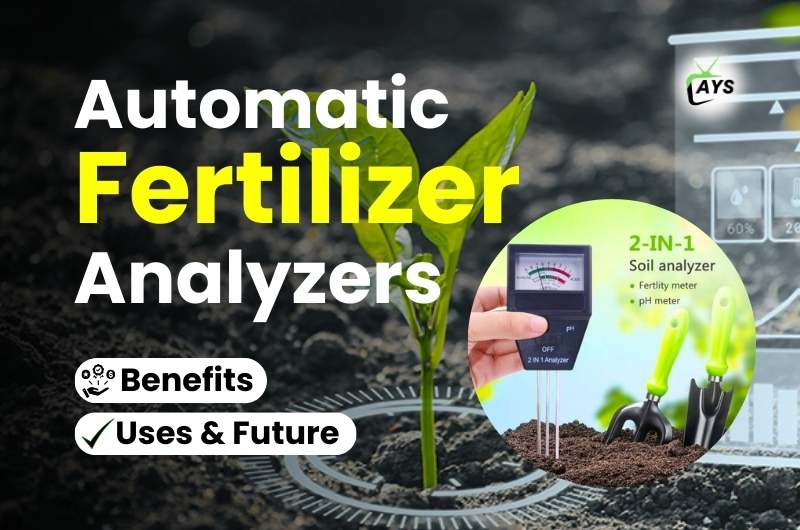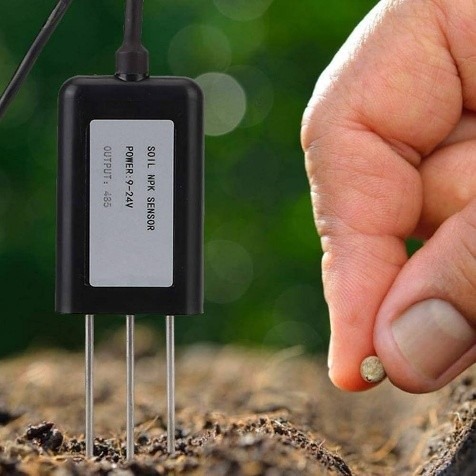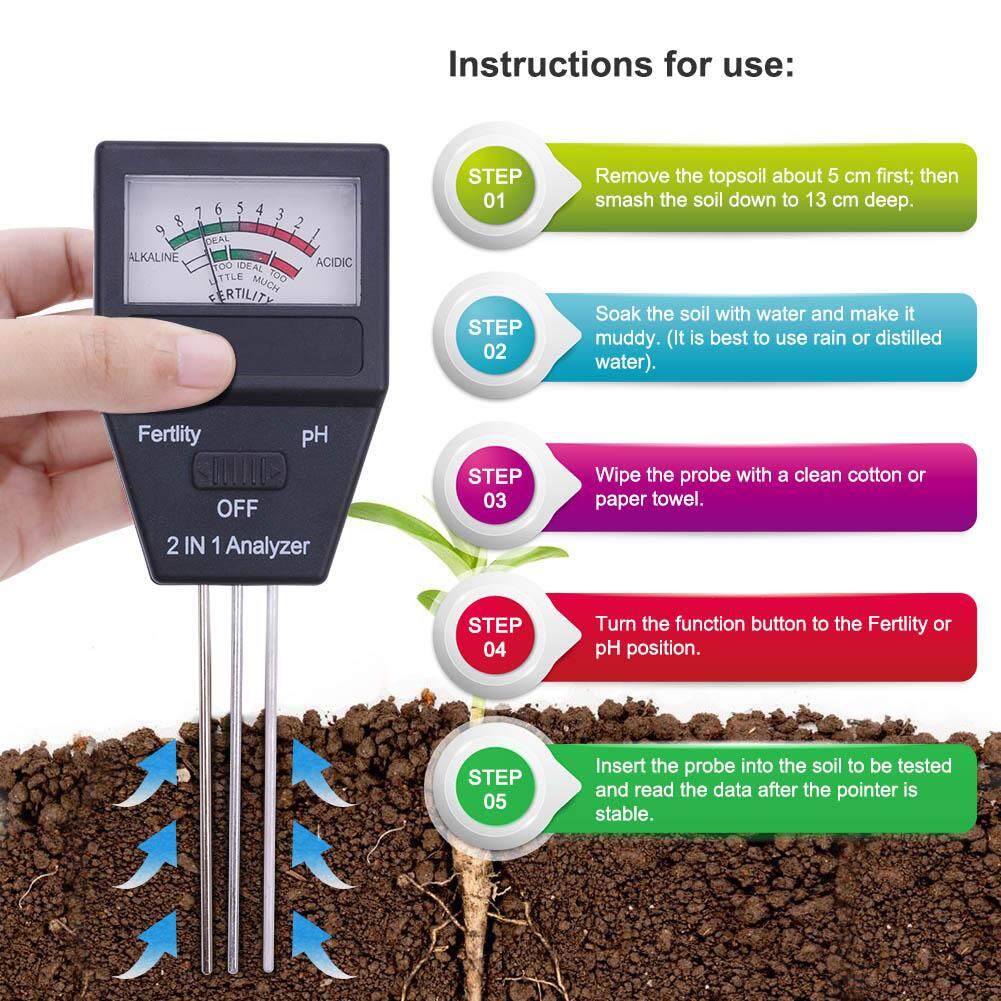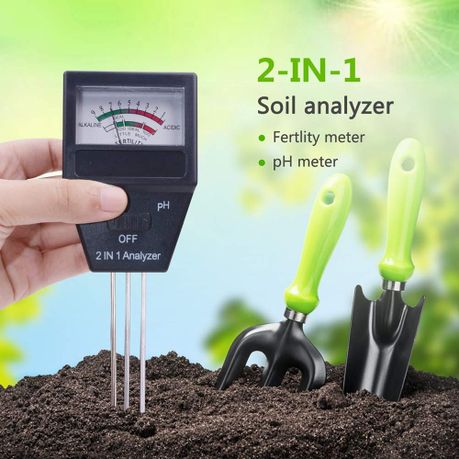


Automatic Fertilizer Analyzers – Benefits, Uses & Future

- By Jitesh Bisht
- (0) comments
- April 3, 2025
Automatic Fertilizer Analyzers – Benefits, Uses & Future
Technology in modern agriculture is revolutionizing the concepts of farming by increasing the efficiency of real time data collection and other farm parameters. Likewise, soil is the major factor for the plant growth and development, hence, the nutrient analysis becomes one of the important procedures before the seed sowing. For this, nutrient analysis devices are used which will simplify the complexity in the nutrient analysis.
So, in this AgriYouth Story blog, it brings for you a fascinating technological innovation used for the soil nutrient calculations and its facts.
Introduction:
• An automatic fertilizer analyzer is a device which is designed to manage fertilizer dose more efficiently in the field. This is an advanced and hi-tech electronic device configured to measure the nutrient content of the soil, after which required doses are calculated easily.
• Its introduction eliminates manual mathematic procedures which saves time and helps farmers itself to optimize their nutrient content of the soil.
• The use of such devices is transforming farming by providing a helping hand in the precision farming. Also, these devices are used to provide the useful insights like soil composition, identifying nutrient deficiencies or excesses that can affect plant growth.
• Their use also simplifies the procedure of thinking where and what amount to be supplied in the field.
What is an Automatic Fertilizer Analyzer?
It is a portable electronic device used to measure soil nutrient content and accordingly optimize fertilizer application.
• It has sensors to detect the nutrients like nitrogen, phosphorus and potassium followed by the analysis of the data and providing the recommendations for the fertilizer doses.

• There are several companies having their own products like Yara N-Tester, Yara Analytical Equipment, Ag Leader Nitrate Sensor, Portable Fertilizer Analyzers, Raven Fertilizer Application Equipment, Crop sense Nitrogen Sensing System and Field Sense Fertilizer Application System.
• Price range of these devices is can be from Rs.15,000 to as much as costly to Rs 6 lakh

Benefits:
• These devices offer various benefits including precise nutrient management by accurately measuring the soil composition and reducing the risk of overfertilization.
• This results in cost savings, hence increasing the overall profit of the farmers.
• The use of such devise also promotes environmental sustainability, supporting smarter, data driven decisions for crop health.
• Also, it reduces manual labour and time spent on soil testing, making farm operations smoother and more streamlined with the better farm management practices.
Applications:
• They help in pin point fertilizer application by measuring the exact dose which is required, ensuring optimum crop growth while reducing over doses.
• These devices help in monitoring soil health and identifying deficiencies which effect crop health.
• Help in customizing the fertilizer application across different section of the field.
• By minimizing the fertilizer over use, they can help in reducing environmental impact of fertilizers.
• These devices can be integrated with other farm management systems for seamless data sharing and optimizing overall farm performance and resource use.
Features & Specifications:
-Real time soil nutrient analysis. (N, P, K, pH levels)
-User-friendly interface.
-Customizable calibration for different soil types and crops.
-Detection accuracy: ±1% to ±5%, depending on the technology used.
-Battery-powered with 8-12 hours of battery life; solar-powered options available.
-Good data storage capacity.
-Can operates in various temperature ranges.
-Waterproof/weather-resistant for outdoor use.
-Compact, portable models (0.5-5 kg), with larger systems weighing up to 15-20 kg.

Global Use Cases of Automatic Fertilizer Analyzers :
• Punjab Agricultural University (PAU), Ludhiana – Uses automated nitrogen testers (e.g., Yara N-Tester) for wheat and paddy cultivation.
• ICAR – Indian Institute of Soil Science (IISS), Bhopal – Uses automated soil testing devices for precision nutrient recommendations.
• Tamil Nadu Agricultural University (TNAU), Coimbatore – Implements automatic NPK analyzers for precision agriculture.
• Andhra Pradesh Precision Farming Initiative – Farmers use portable automatic soil analyzers to determine real-time fertilizer requirements.
• United States – University of Illinois & Ag Leader Technology – Uses automatic nitrogen sensors integrated into precision farming.
• Brazil – EMBRAPA (Brazilian Agricultural Research Corporation) – Utilizes AI-powered automatic soil analyzers for soybean and coffee farming.
• Australia – Queensland Smart Farming Initiative – Uses automatic fertilizer application sensors in cotton and grain farming.
Challenges & Limitations:
However, these devices have several benefits but still some of their demerits are:
1. High initial cost.
2. Technical complexity
3. Calibration and Maintenance
4. Limited Scope of Measurement
5. Dependence on Environmental Conditions
6. Battery Life and Power Dependency
Despite some of these challenges, technology is growing to make these devices more user friendly and accessible to the farmers.


Content Writer